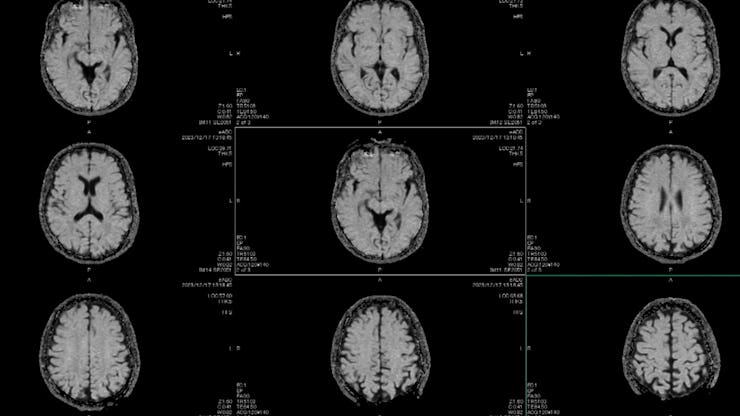This New Map Of Gene Regulation Could Change The Way We See The Human Brain
A project to map the gene regulation responsible for brain development takes some big first steps.

The pathology of mental disorders is complex. Researchers can’t just attribute mental disorders to one or a few single mutations in a gene or protein — there are too many factors at play. After all, some 98 percent of the human genome is composed of DNA segments that are important for regulating other genes. To pin down the interplay between these genes and mental disorders, a consortium funded by the National Institute of Mental Health are making a map. In a series of new papers, the researchers outlined genes and regulatory elements that control the brain’s pathways — crucial steps toward finding out how genes contribute to mental health disorders.
Using brain tissue from over 2,500 donors, researchers have built gene regulation networks that help outline multiple areas of the brain that play key roles in decision-making, memory, learning, emotion, reward processing, and motor control. They then created maps across different stages of brain development, and brain-related disorders. The findings were published across 15 different papers in Science, Science Advances, and Scientific Reports
In this work, researchers were able to develop population wide analyses, as well as single-cell maps of the prefrontal cortex. They also conducted experimental analyses that validated certain segments of DNA that are linked with observable traits.
The papers also introduced new methods and tools that others can explore. Specifically, the web-based platform PsychSCREEN provides interactive visualizations of the brains of those with and without mental disorders. Individuals can look at the genetic underpinnings of human brain development, function, and general physiology in many different ways. The site pulls from existing literature about genetics of certain diseases (i.e. schizophrenia and insomnia), as well as traits (i.e. BMI, and cigarette smoking).
By mapping all the different elements, the platform shows how gene regulation works in the brain and how it could be affected by mutations or disorders.
This project’s broad aim is to help researchers everywhere get a better idea of how genes contribute to mental health disorders like schizophrenia, post-traumatic stress disorder, and depression. Nailing down the genetics could help researchers develop treatments down the line.
“The critical resources, shared freely, will help researchers pinpoint genetic variants that are likely to play a causal role in mental illnesses and identify potential molecular targets for new therapeutics,” Joshua A. Gordon, M.D., Ph.D., director of NIH’s National Institute of Mental Health (NIMH) said in a press release.